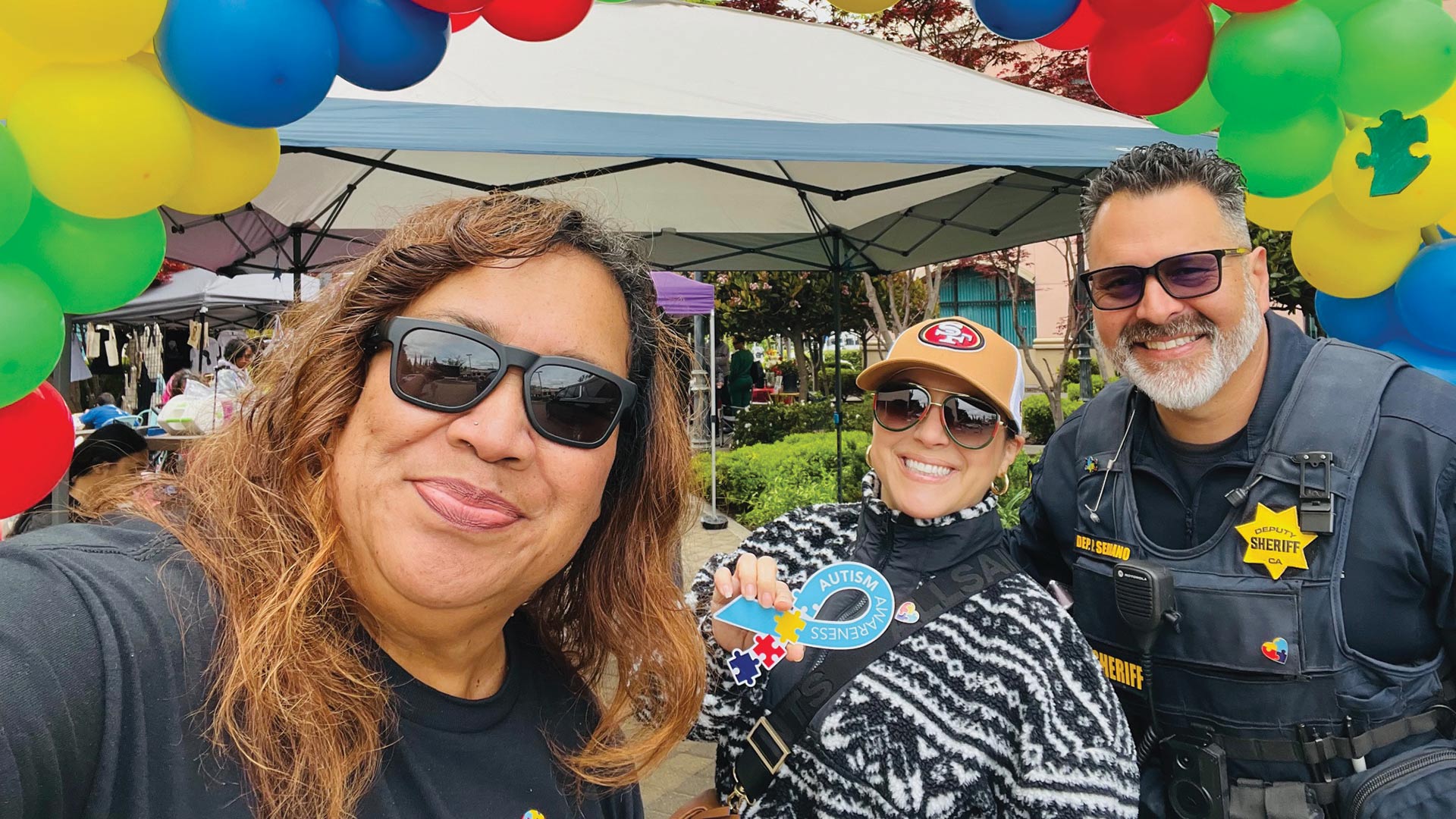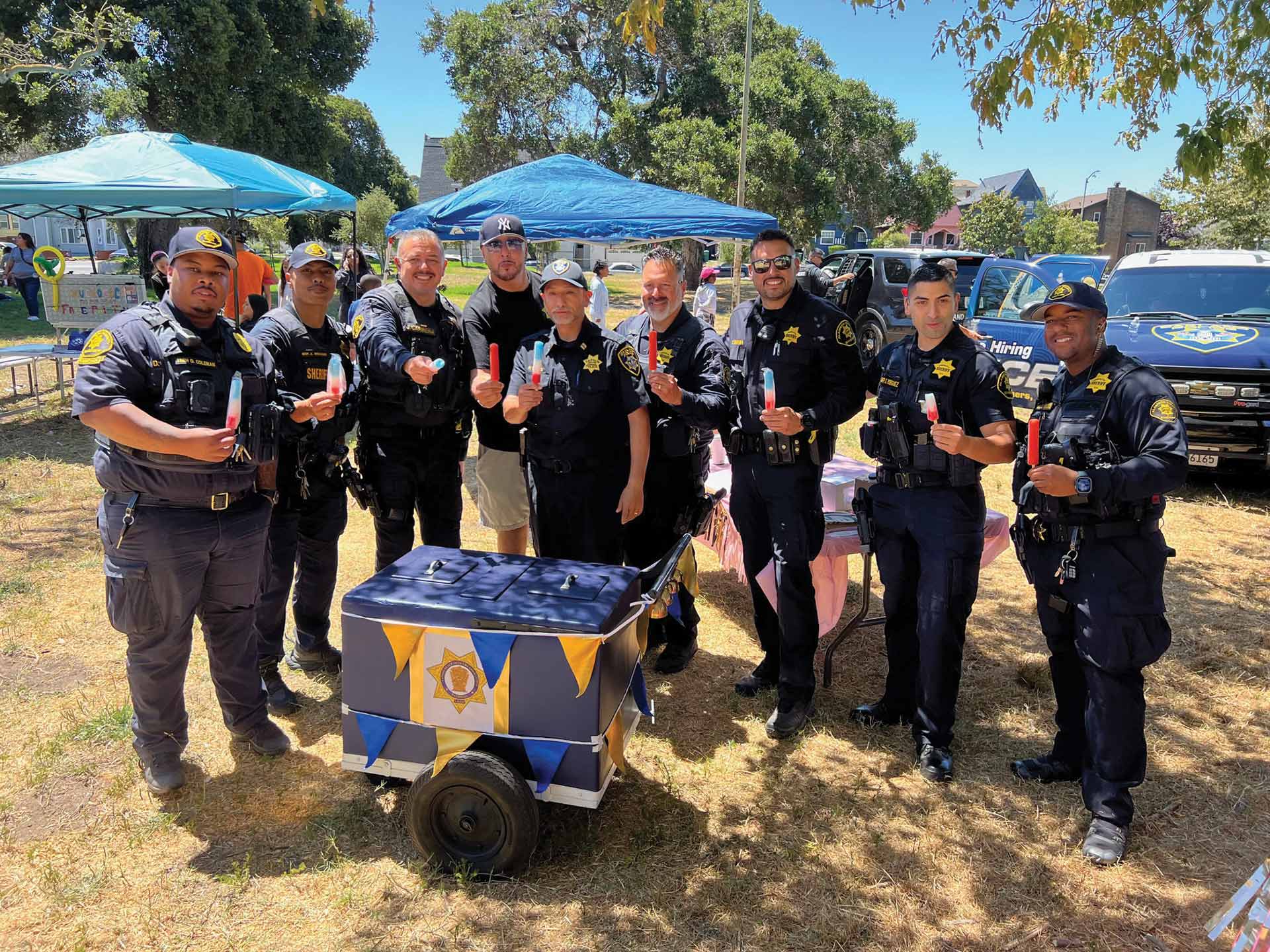Want to learn more about the leaders of PORAC? In this series of profiles, we turn the spotlight on the dedicated directors who help to govern and represent the organization in the service of our members.

The Power of Information Sharing
Despite being a 20-year veteran of the Alameda County Sheriff’s Office, Deputy Peter Serrano is relatively new to PORAC leadership. He became president of the Deputy Sheriffs’ Association of Alameda County this past July, and was sworn in as a director-at-large for PORAC in the same month. With this opportunity to take his involvement to the next level and expand his focus, he says he’s looking forward to what he can learn from the Board of Directors role, as well as what he can contribute to effectively serve his DSA and peace officers throughout California. “I’m excited to gain knowledge from the entire state of members,” he shares. “I hope to pass as much information as possible to the association and prepare the team for political hurdles to overcome.”
One of Serrano’s primary concerns is the law enforcement profession’s increasing challenges of hiring new sworn staff and preventing existing ones from leaving the field altogether. “I believe that, working with PORAC, all departments can fuel the bills through our Assembly and improve some of the limits to the new retirement system (PEPRA),” he says. “I intend to work with our county to have a better working relationship and in turn help to lower the rate of turnover.”
In addition to helping local agencies and associations, as he envisions the future of PORAC, Serrano has his sights set on what can be achieved beyond California’s borders. “I would like to see the organization grow to a nationwide status, starting with the western states and moving eastward,” he says. “We should allow federal agencies with whom we share the workload, and at times work alongside, a seat at the table.”
Such expansion would further amplify the power of PORAC, which Serrano sees as offering the ability to share information. “With information sharing, we are able to stop crimes in progress utilizing the available cameras, drones, license plate readers and crime information centers,” he explains. “PORAC has a further reach, so it can almost instantly know when an association needs assistance and offer that assistance. As we learn from other agencies, we help each other to avoid similar problems before they can grow into larger costly mistakes. PORAC being centered in Sacramento is tremendous to lobby for the smaller associations that may be limited with their budgets.”
Serrano advises fellow members who are considering getting more involved in PORAC to start by simply attending meetings, assisting with events and contacting their association for guidance on issues. His own history is an example of how smaller steps can add up to big impacts. Serrano’s first leadership role with his DSA was as a shop steward, in an effort to promote more member participation. That experience is now one he lists among his proudest accomplishments: “I assisted with bringing back the shop steward program and believe more involvement from the members contributed to a better contract.” Achievements like that illustrate what can happen when members add their voices to PORAC’s network of information sharing. “I have learned the more involved you are, the better able you are to add to the solutions and find other ideas to combat issues for neighboring agencies who may be larger or smaller than your department,” Serrano says.

